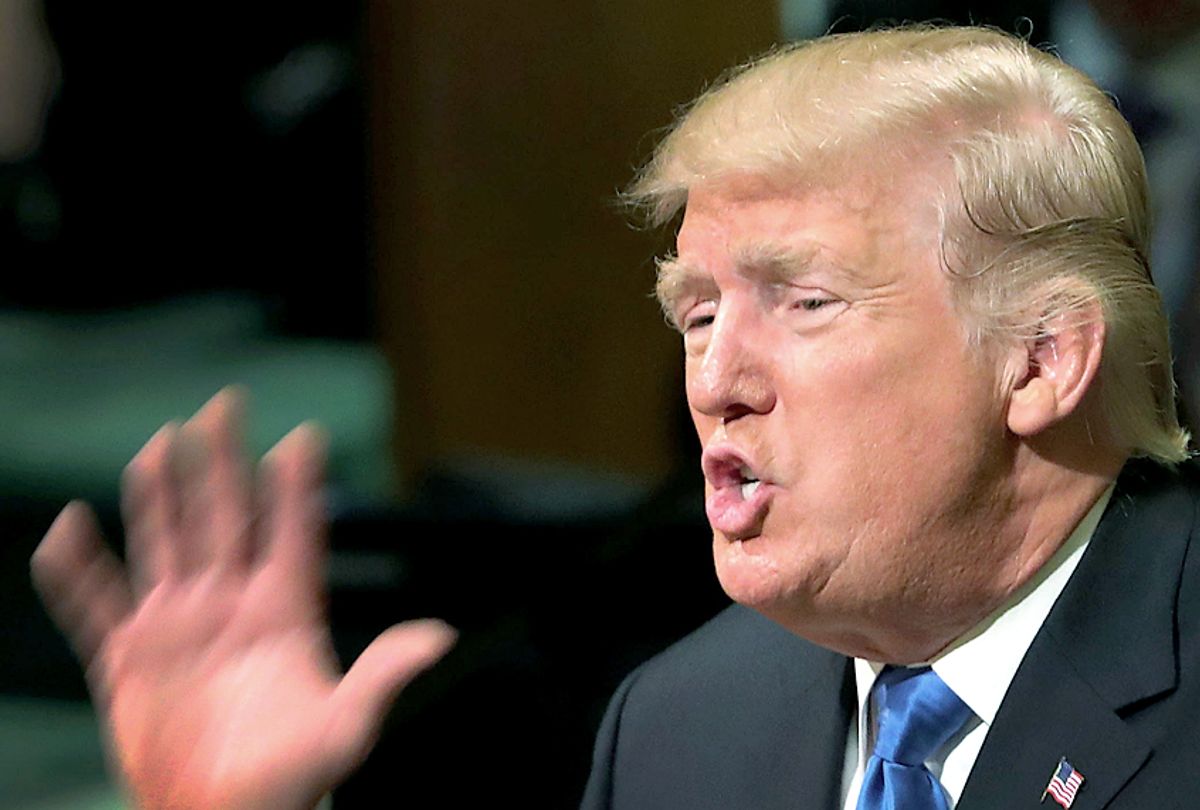President Donald Trump's "fake news" awards have been released — and they have proved to be little more than yet another instance of the president taking swipes at media outlets he dislikes.
The so-called "winners" included Paul Krugman of The New York Times for an opinion article predicting an economic catastrophe if Trump was elected. This alone should tell you that the awards — hosted by the Republican Party and not the president himself or the White House — give little credit to what "fake news" really means.
For reasons unknown, the awards were placed on the GOP server, and it immediately crashed their website.
Brian Ross of ABC News also won an award for his inaccurate reporting on the indictment of Paul Manafort, which he later corrected. CNN's minor flaw in a WikiLeaks story earned it an award; so did a minor error in a story about Trump feeding fish in Japan. Time won an award for a later-retracted tweet from a reporter saying Trump had removed a bust of Martin Luther King Jr. from the Oval Office. A Washington Post reporter tweeted that a Trump rally was empty when it had been sold out. This all provided subtext for Trump's claim that the Russia investigation is itself fake news.
The White House doesn't understand what fake news is and how it differs from errors in reporting, which, unfortunately, happens.
"Everyone makes mistakes — and the point is not to play gotcha," Glenn Kessler, Washington Post fact-checker noted. "News organizations operate in a competitive arena and mistakes are bound to be made. The key test is whether an error is acknowledged and corrected."
He later added, "To sum up, at least eight of the 'Fake News' winners resulted in corrections, with two reports prompting suspensions or resignations. Two of the winners were simply tweets that were quickly corrected and never resulted in news articles. One was an opinion article in which the author later retracted his prediction."
On social media, reactions to the Fake News Awards seemed to be split based on partisan inclinations.
This partisan split perhaps explains why Trump decided to create his "fake news" awards in the first place. The president has used the word "fake" more than 400 times since he was inaugurated just under one year ago, according to CNN. A study released earlier this week by Gallup and The Knight Foundation even argued that "40 percent of Republicans say accurate news stories that cast a politician or political group in a negative light should 'always' be considered fake news."
That said, Trump's determination to discredit his media critics, even by citing flimsy examples of honest mistakes, has received some detractors from his own party.
"The free press is the despot's enemy, which makes the free press the guardian of democracy. When a figure in power reflexively calls any press that doesn't suit him 'fake news,' it is that person who should be the figure of suspicion, not the press," Sen. Jeff Flake, R-Ariz., explained in a speech on Thursday.
Flake is not alone in sharing those concerns.
"Historically, the United States has stood as a beacon for press freedom and as a comfort to journalists who are imprisoned or threatened for their work around the world, but with the attacks against individual journalists and media outlets, the vilification of the press, the undermining of journalism's role in democracy, the constant use of 'fake news' as an epithet thrown at journalists and media outlets to denigrate their work and try to dismiss them, he has set a new global standard that is not the typical standard the U.S. sets," Courtney Radsch, advocacy director at the Committee to Protect Journalists, told Salon last week.



Shares